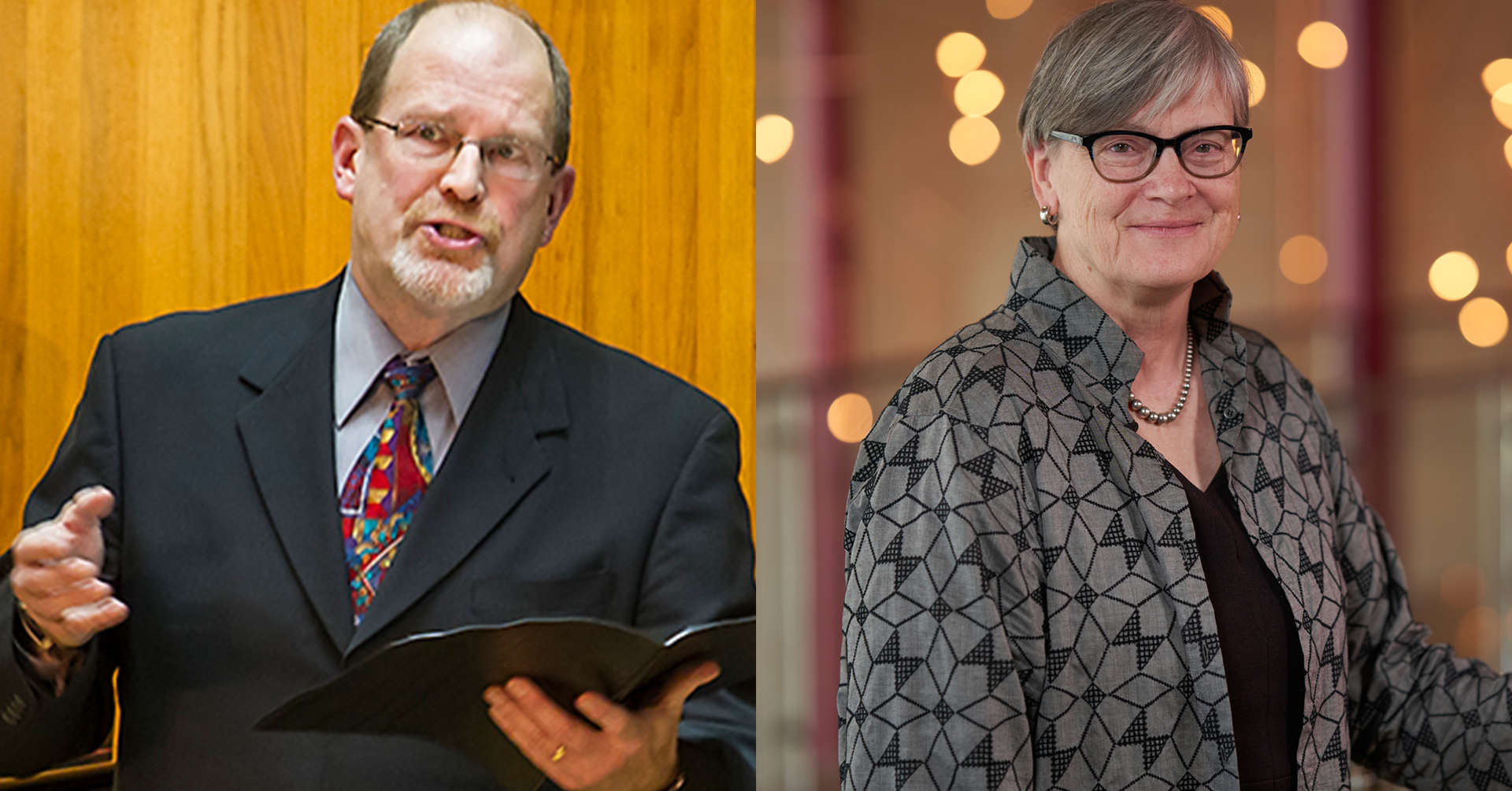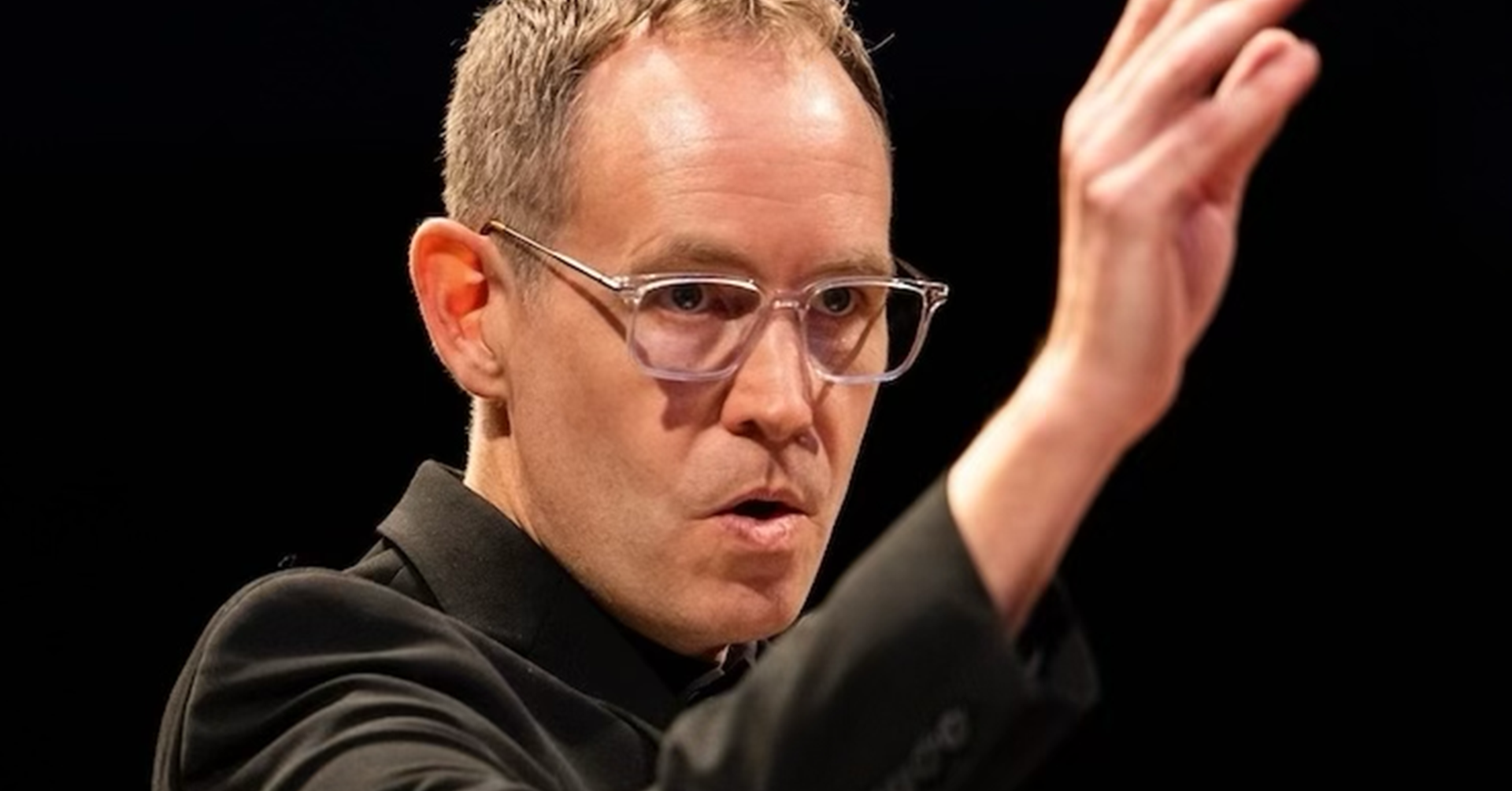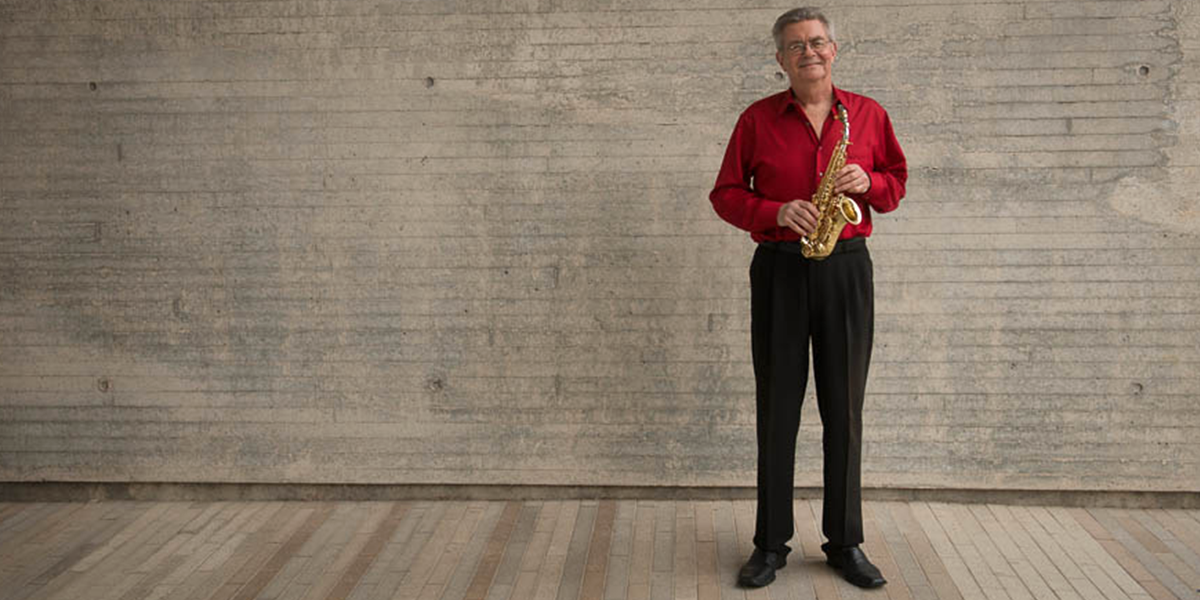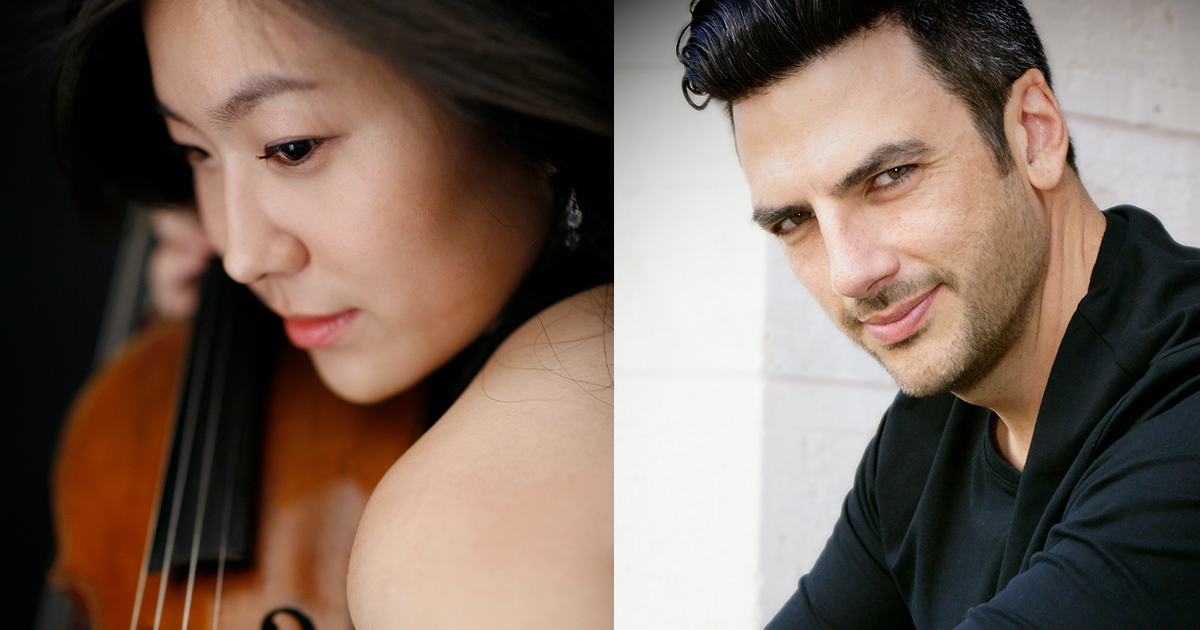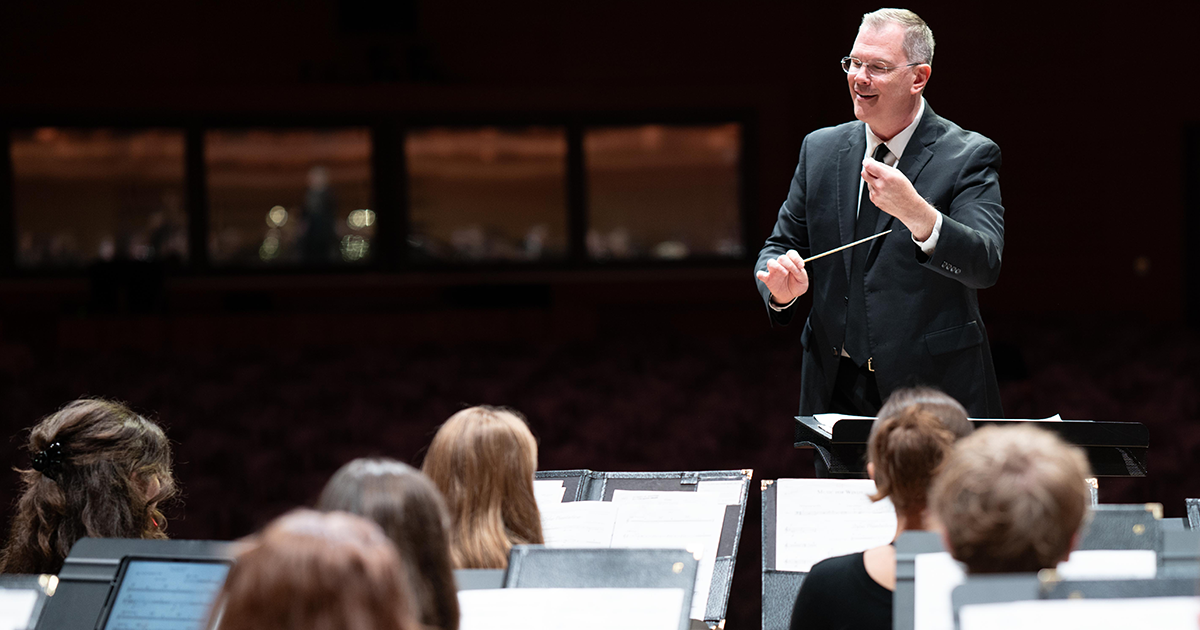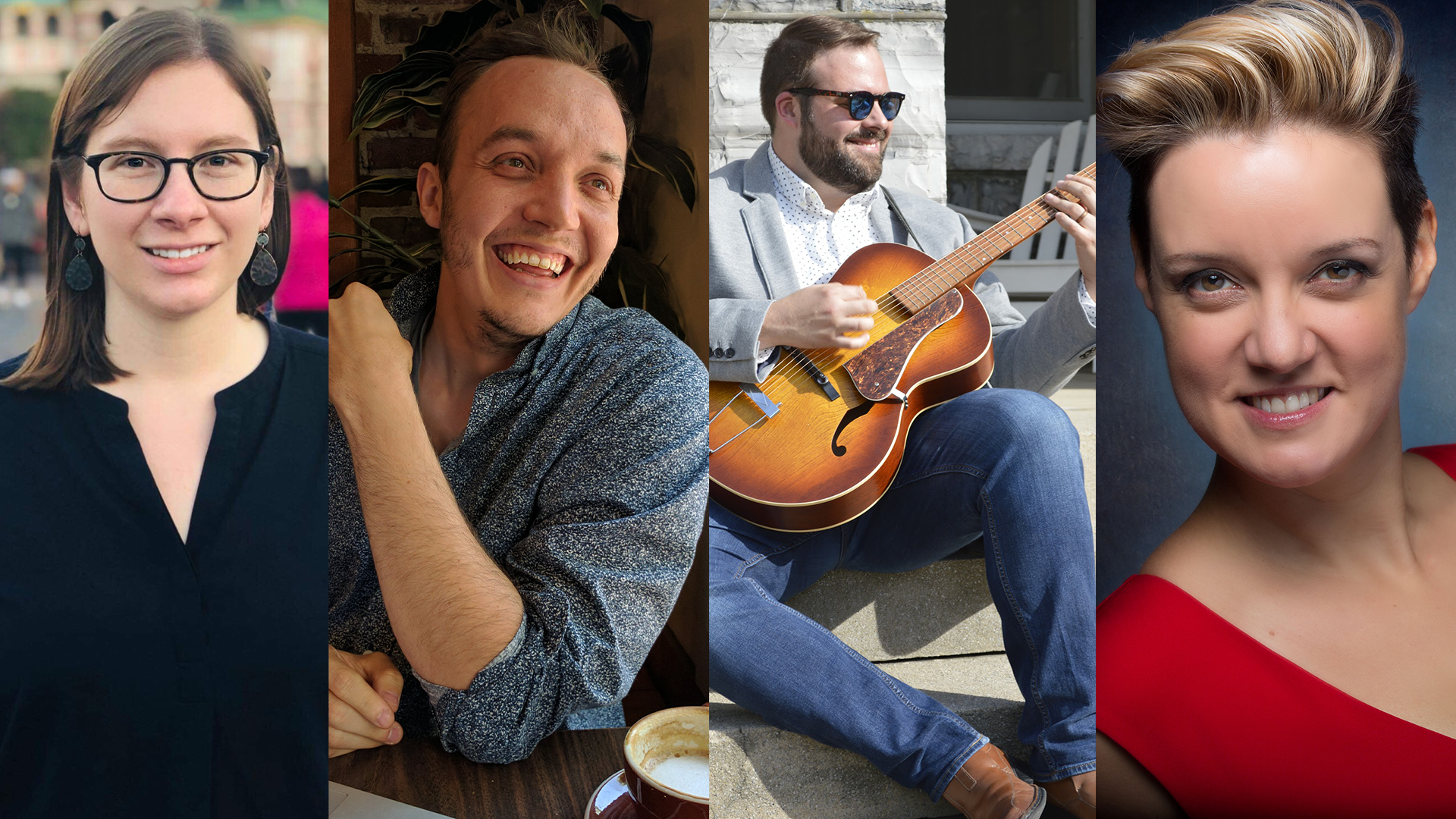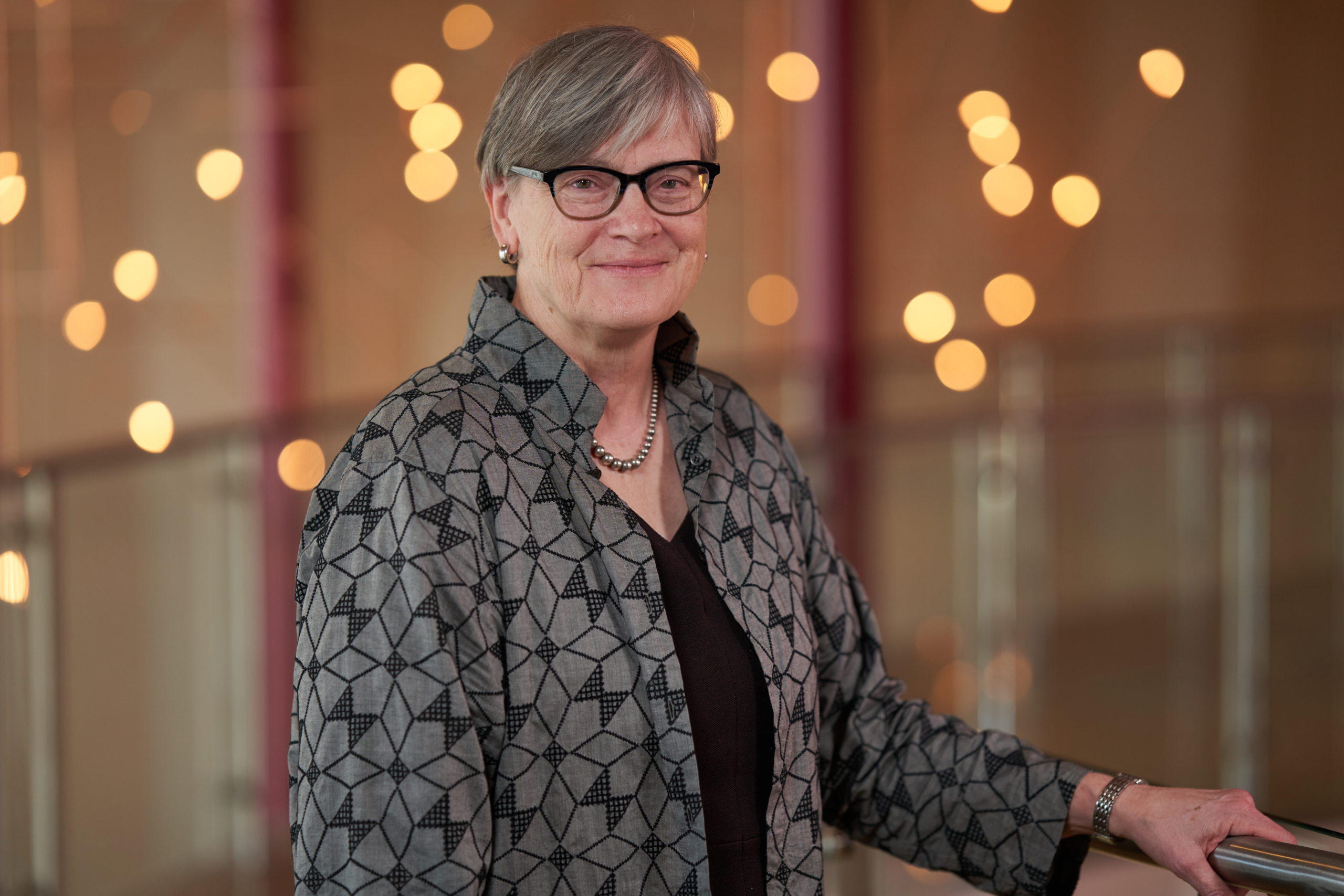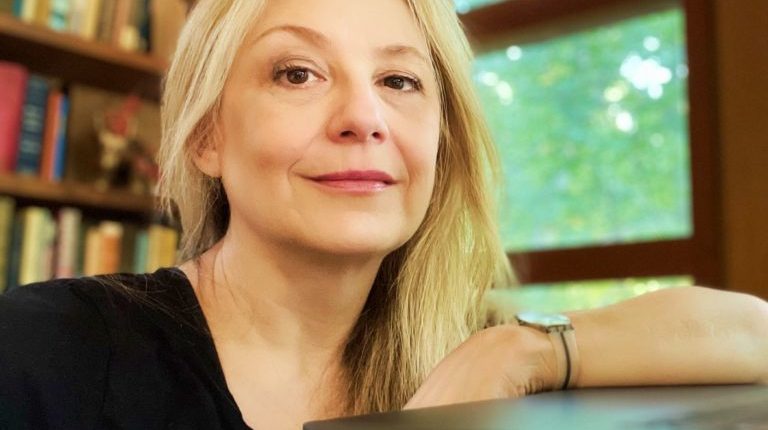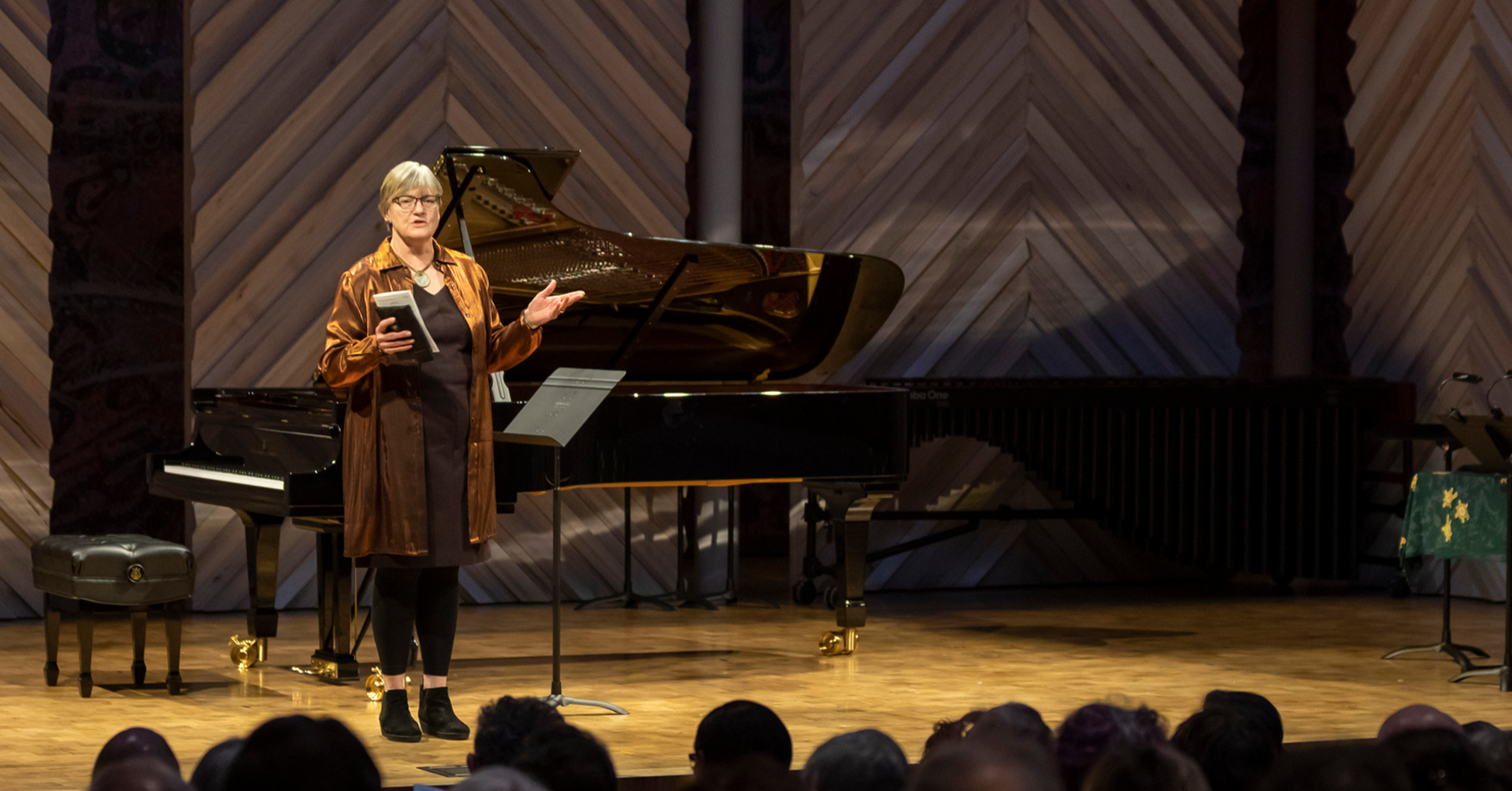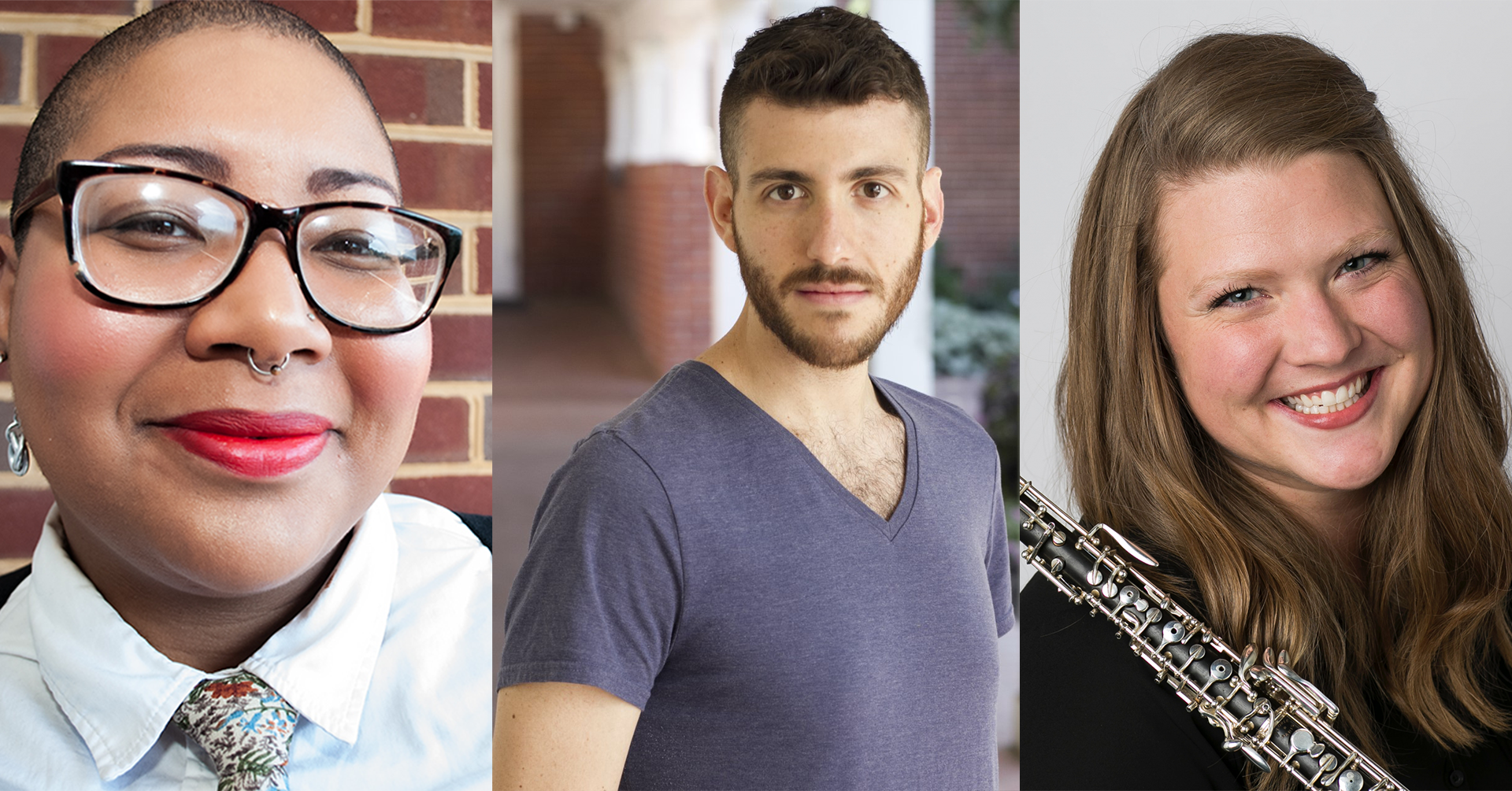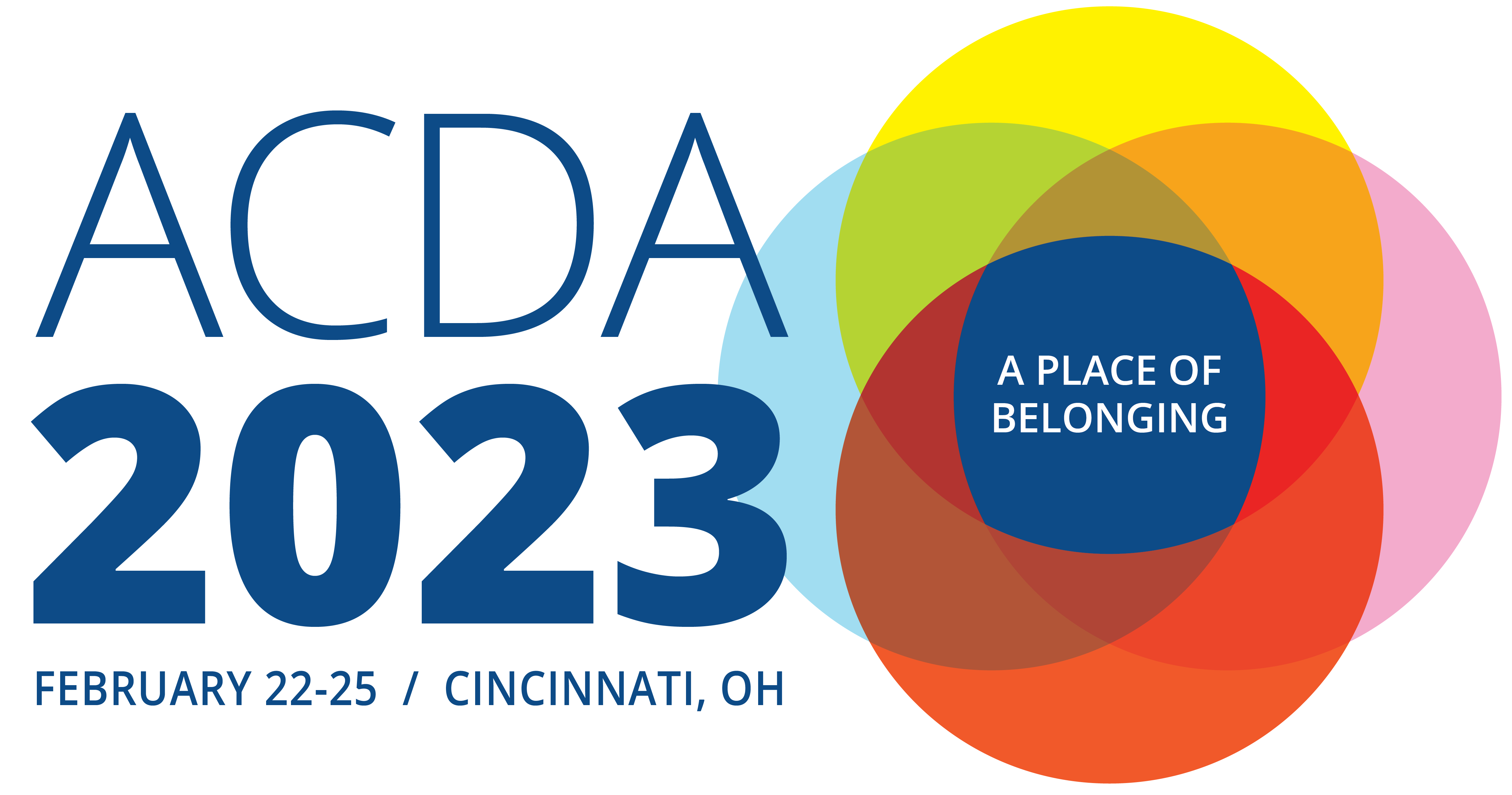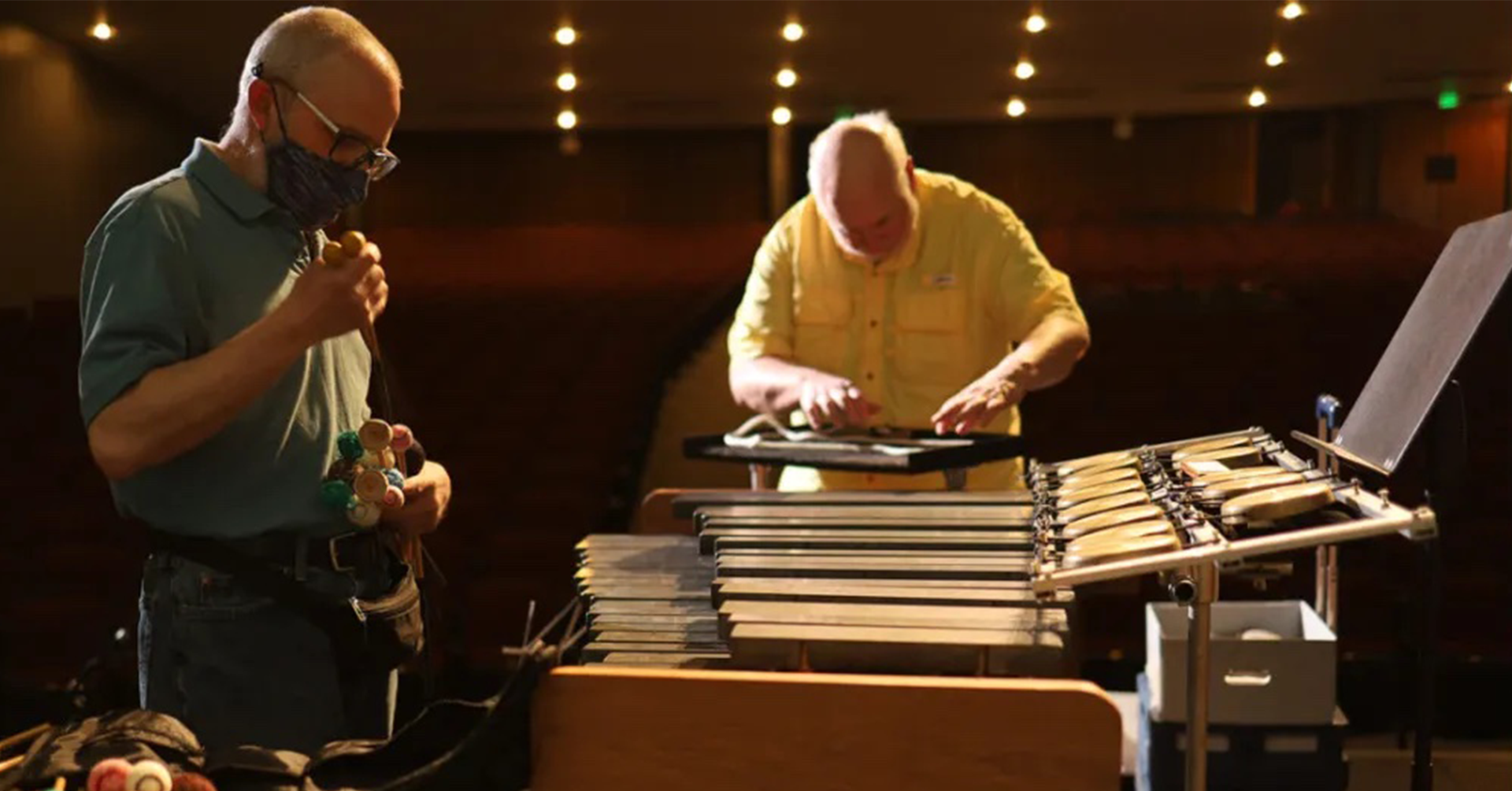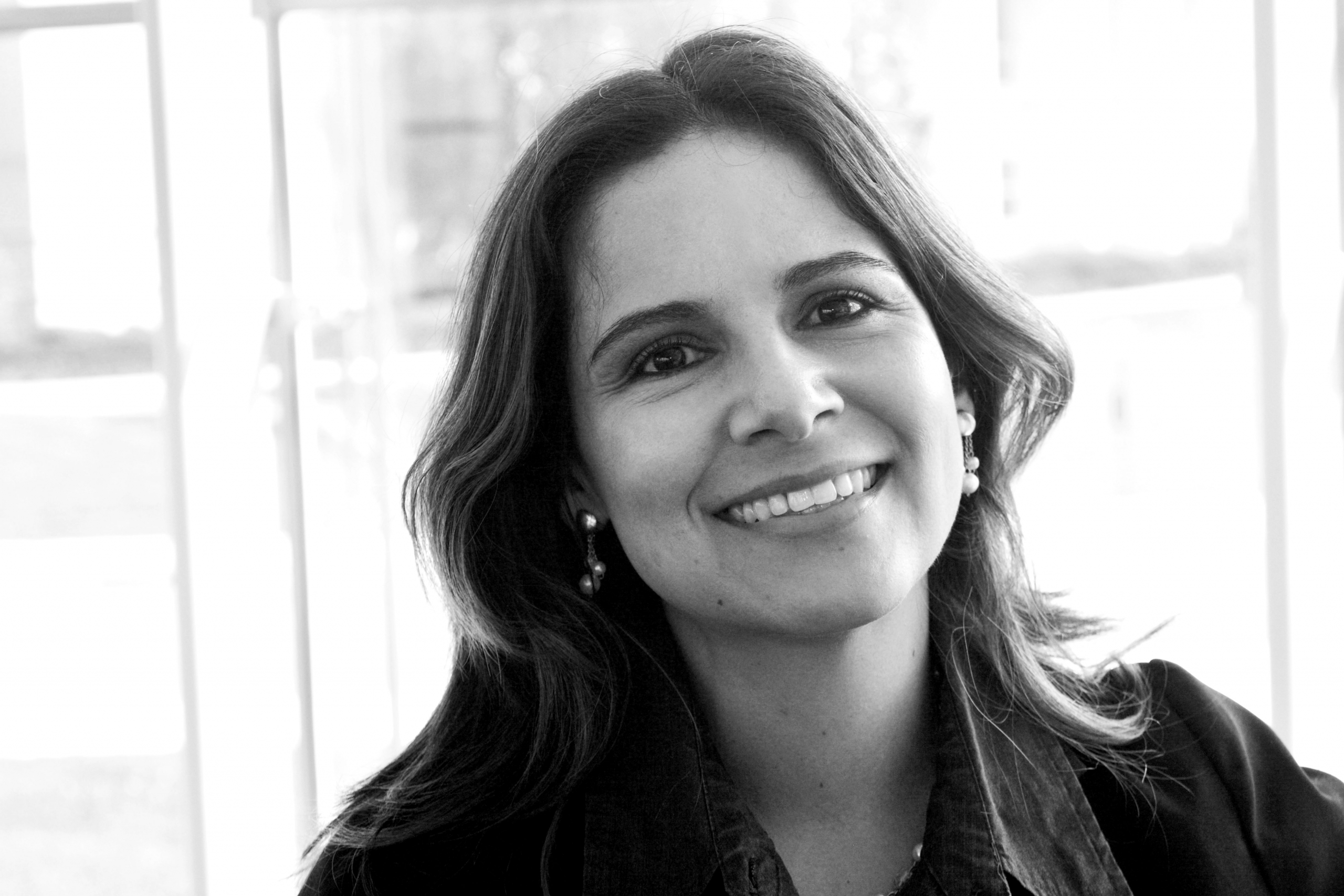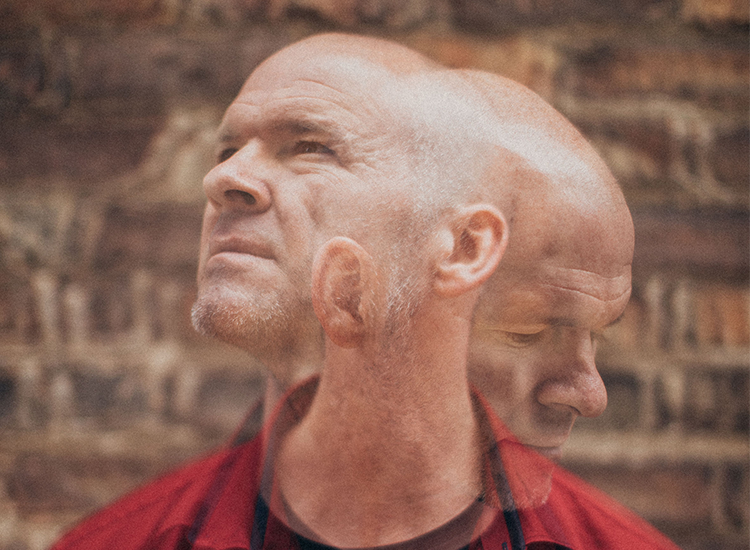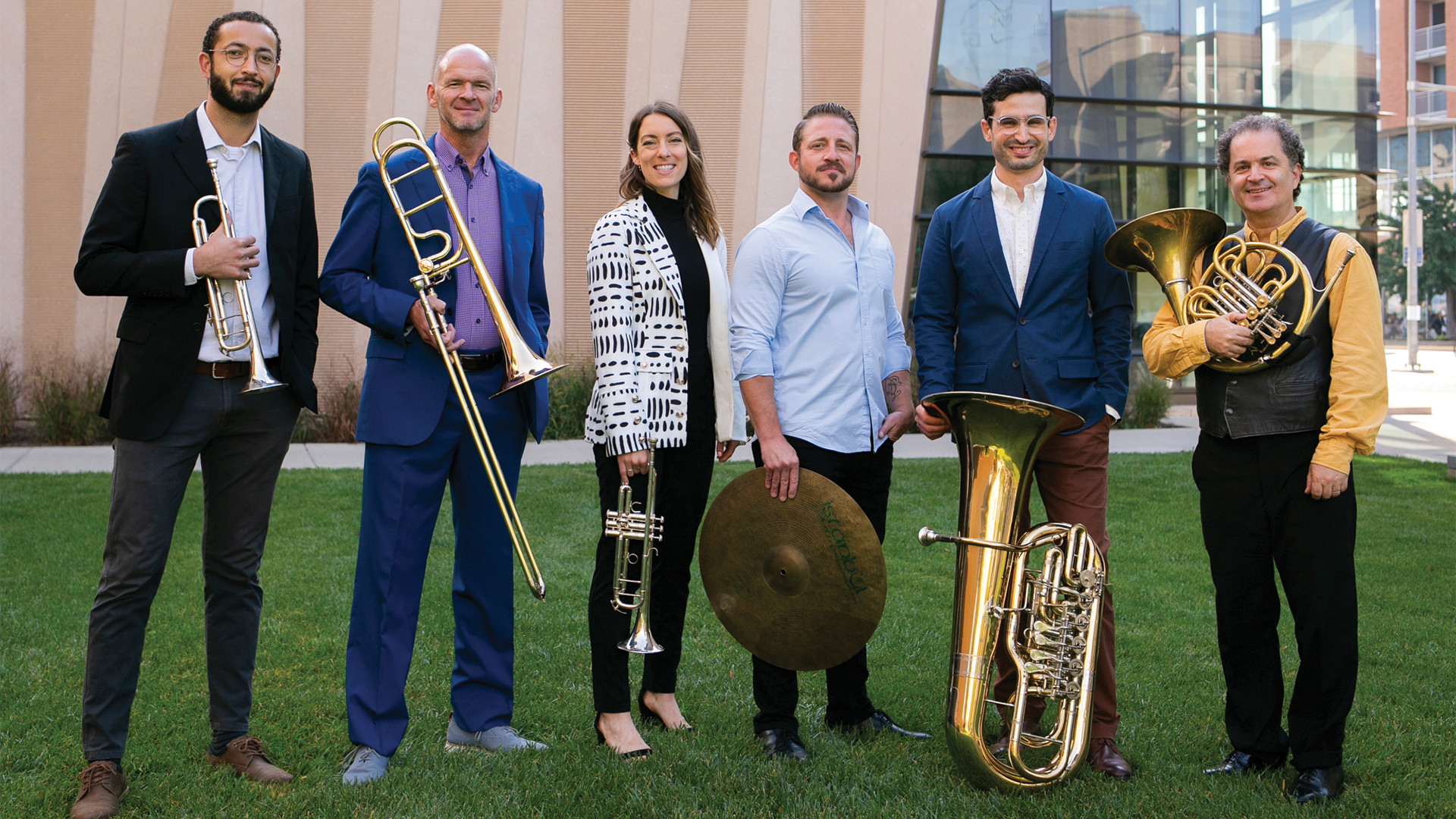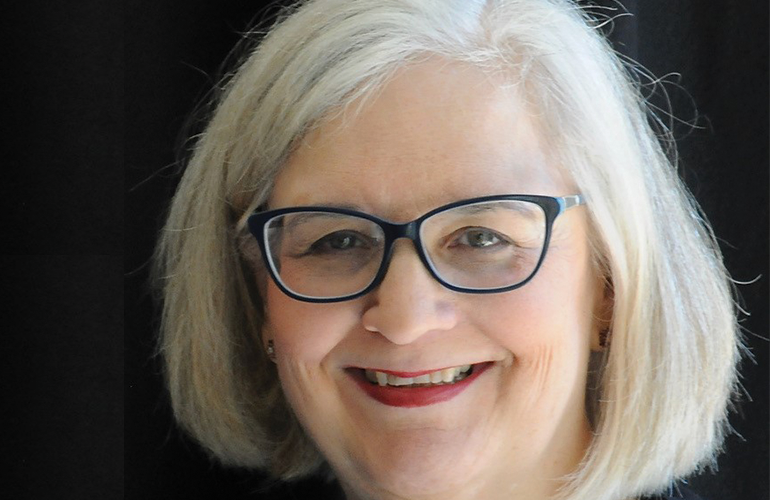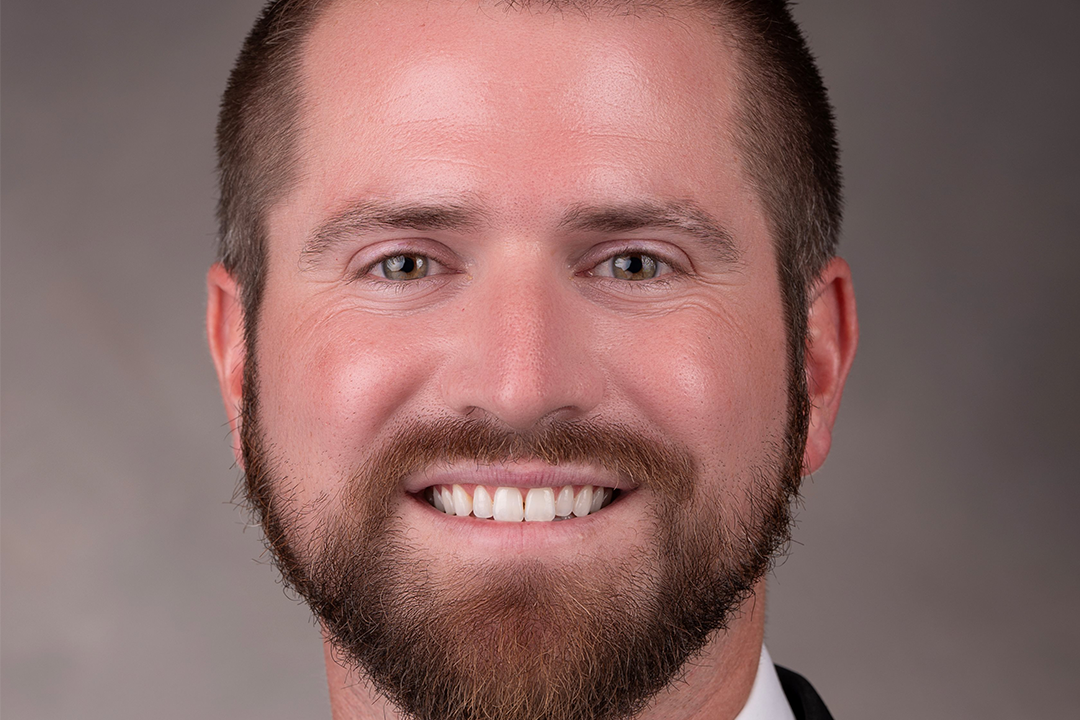
The School of Music is excited to announce Herb Payung as the next Assistant Director of Bands. He will serve alongside the band faculty to teach and help guide the historic University of Wisconsin Bands program in the School of Music. In addition, he will assist with aspects in both the athletic and concert band programs, and the undergraduate curriculum. Payung replaces Alexander Gonzalez, who has been hired as the Director of Bands at Southern Oregon University.
“As an alumnus of UW–Madison, I am aware not only of the well-established musical tradition of the Mead Witter School of Music, but of the tightly-knit community formed by its faculty and students,” Payung said. “I am grateful for the opportunity to re-enter this flourishing creative space in a new capacity and continue to build relationships through music making.”
Previously, Payung served as the Assistant Director of Bands at Elon University where he was involved with all aspects of the athletic band program and conducted the Concert Band. At the onset of his career, Payung taught instrumental music in eastern Pennsylvania. During his six years in public education, Payung conducted high school concert bands, jazz ensembles, pit orchestras, and marching bands. He taught courses in instrumental music and jazz improvisation. Payung also served as an elementary band director and brass and percussion instructor at the middle school level.
“We are extremely proud and excited to welcome Dr. Payung home to UW–Madison after an extensive national search by the Mead Witter School of Music,” said Corey Pompey, Associate Director of Bands and Director of Athletic Bands. “Payung is an exceptional artist-teacher and high-caliber individual. Without question, our students will benefit from all that he has to offer.”
Payung holds music degrees from Penn State University (BME, MM Wind Conducting), Boston University (MM Music Education) and UW–Madison (DMA Wind Conducting). His primary conducting teachers include Scott Teeple of UW–Madison and Dennis Glocke of Penn State University.
“We conducted a comprehensive national search to find the individual best suited for our position,” said Scott Teeple, Director of Bands in the School of Music. “Dr. Payung brings a wealth of knowledge about Big Ten band programs. He exercises a deep appreciation for our traditions, while also bringing a forward-thinking philosophy to our students and programs.”
Payung is a member of the College Band Directors National Association, the National Band Association, the National Association for Music Education, the American Federation of Musicians, and Pi Kappa Lambda, Music Honor Society.
